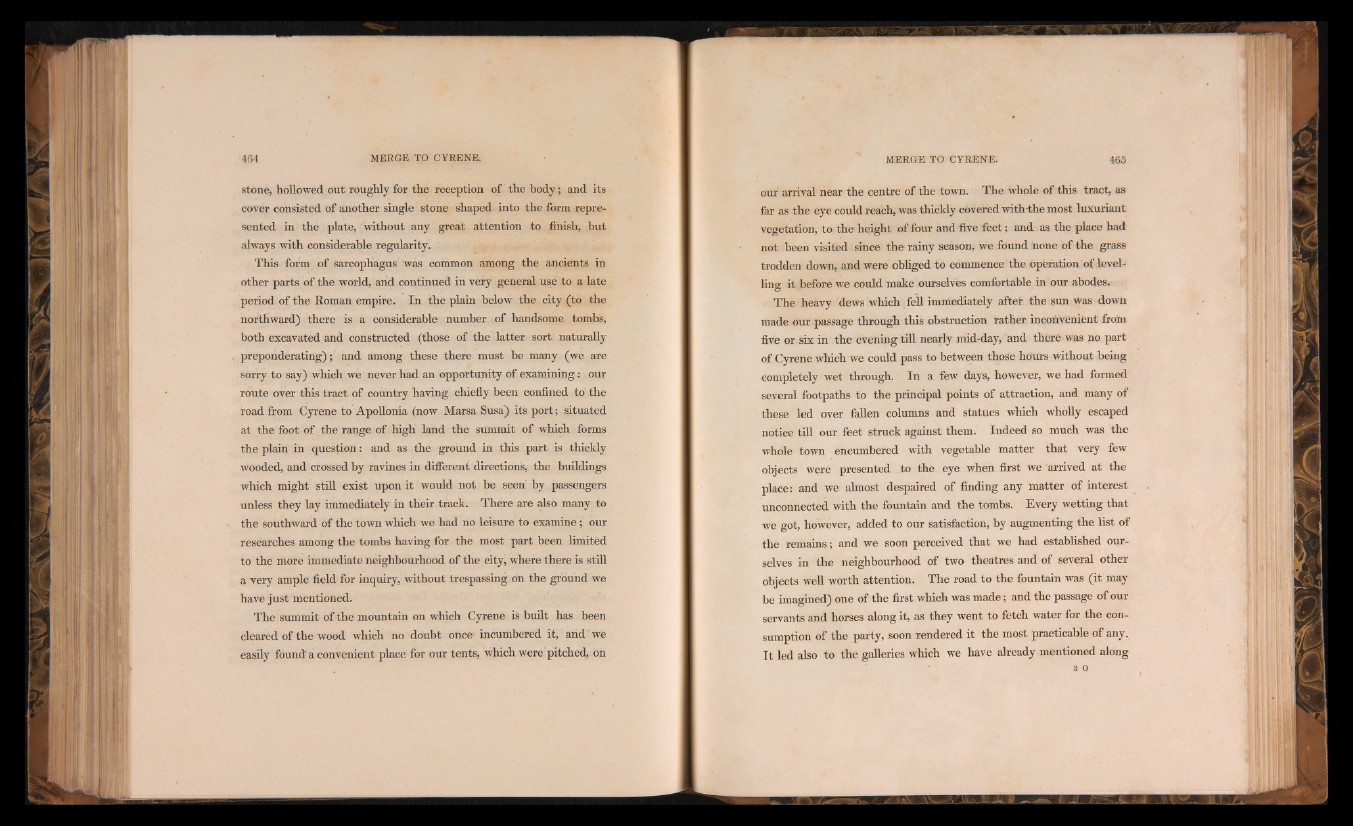
stone, hollowed out roughly for the reception of the body ; and its
cover consisted of another single stone shaped into the form represented
in the plate, without any great attention to finish, but
always with considerable regularity.
This form of sarcophagus was common among the ancients in
other parts of the world, and continued in veTy general use to a late
period of the Eoman empire. In the plain below the city (to the
northward) there is a considerable number of handsome tombs,
both excavated and constructed (those of the latter sort naturally
preponderating) ; and among these there must he many (we are
sorry to say) which we never had an opportunity of examining.: our
route over this tract of country having chiefly been confined to the
road from Cyrene to Apollonia (now Marsa Susa) its port; situated
at the foot of the range of high land the summit of which forms
thé plain in question : and as the ground in this part is thickly
wooded, and crossed by ravines in different directions, the buildings
which might still exist upon it would not be seen by passengers
unless they lay immediately in their track. There are also many to
the southward of the town which we had no leisure to examine ; our
researches among the tombs having for the most part been limitëd
to the more immediate neighbourhood of the city, where there is still
a very ample field for inquiry, without trespassing on the ground we
have just mentioned.
The summit of the mountain on which Cyrene is built has been
cleared of the wood which no doubt once incumbered it, arid we
easily found a convenient place for our tents, which were pitched, on
our arrival near the centre of the town. The whole of this tract, as
far as the eye could reach, was thickly covered with-the most luxuriant
vegetation, to the height of four and five feet; and as the place had
not been visited since the rainy season, we found none Of the grass
trodden down, and were obliged to commence the operation of level-'
ling it before we could make ourselves comfortable in our abodes.
The heavy dews which fell immediately after the sun was down
made our passage through this obstruction rather inconvenient from
five or six in the evening till nearly mid-day, and there was no part
of Cyrene which we could pass to between those hours without being
completely wet through. In a few days, however, we had formed
several footpaths to the principal points of attraction, and many of
these led over fallen columns and statues which wholly escaped
notice till our feet struck against them. Indeed so much was the
whole town encumbered with vegetable matter that very few
objects were presented to the eye when first we arrived at the
place: and we almost despaired of finding any matter of interest
unconnected with the fountain and the tombs. Every wetting that
we got, however, added to our satisfaction, by augmenting the list of
the remains; and we soon perceived that we had established ourselves
in the neighbourhood of two theatres and of several other
objects well worth attention. The road to the fountain was (it may
be imagined) one of the first which was made; and the passage of our
servants and horses along it, as they went to fetch water for the consumption
of the party, soon rendered it the most practicable of any.
I t led also to the galleries which we have already mentioned along